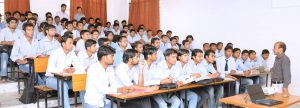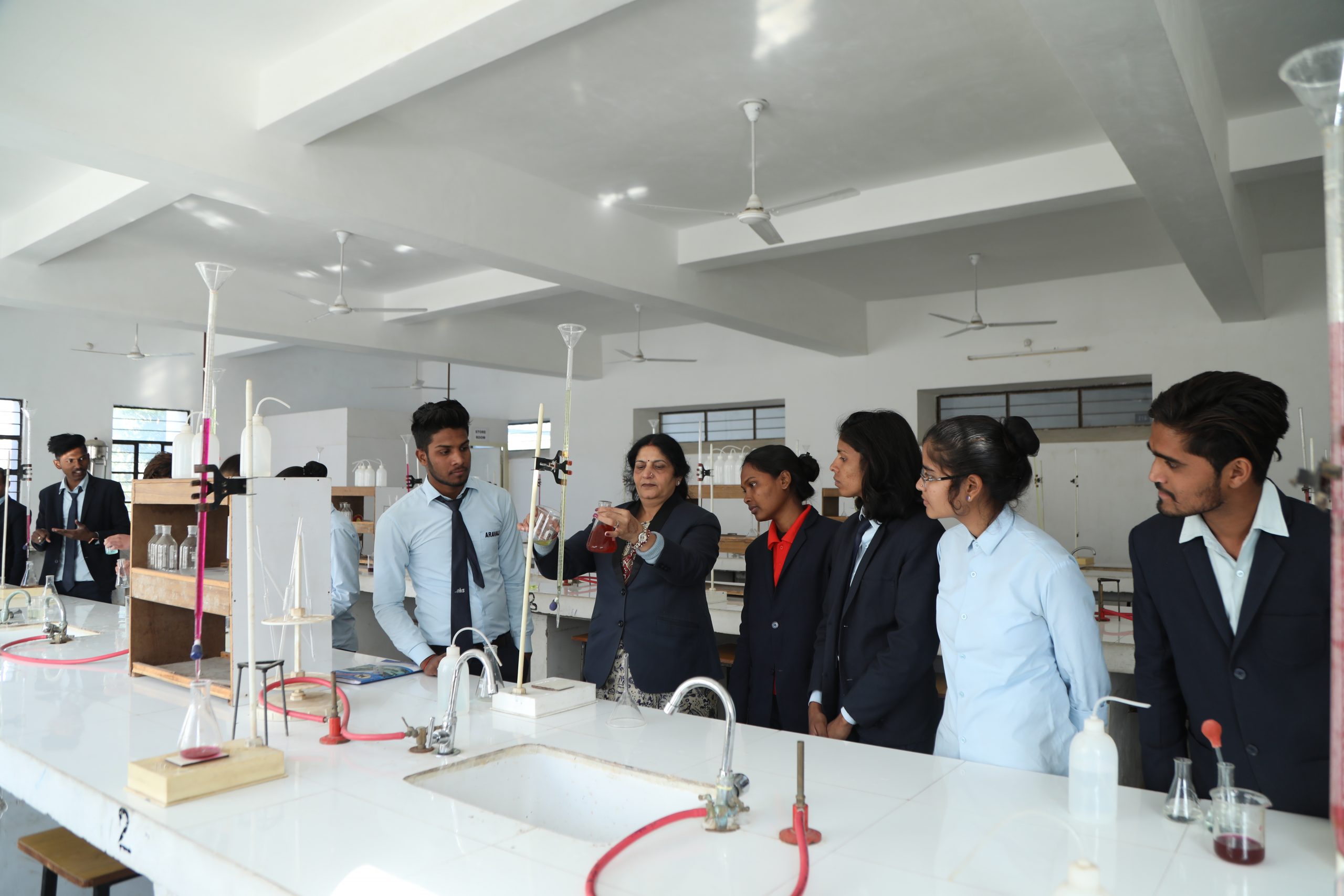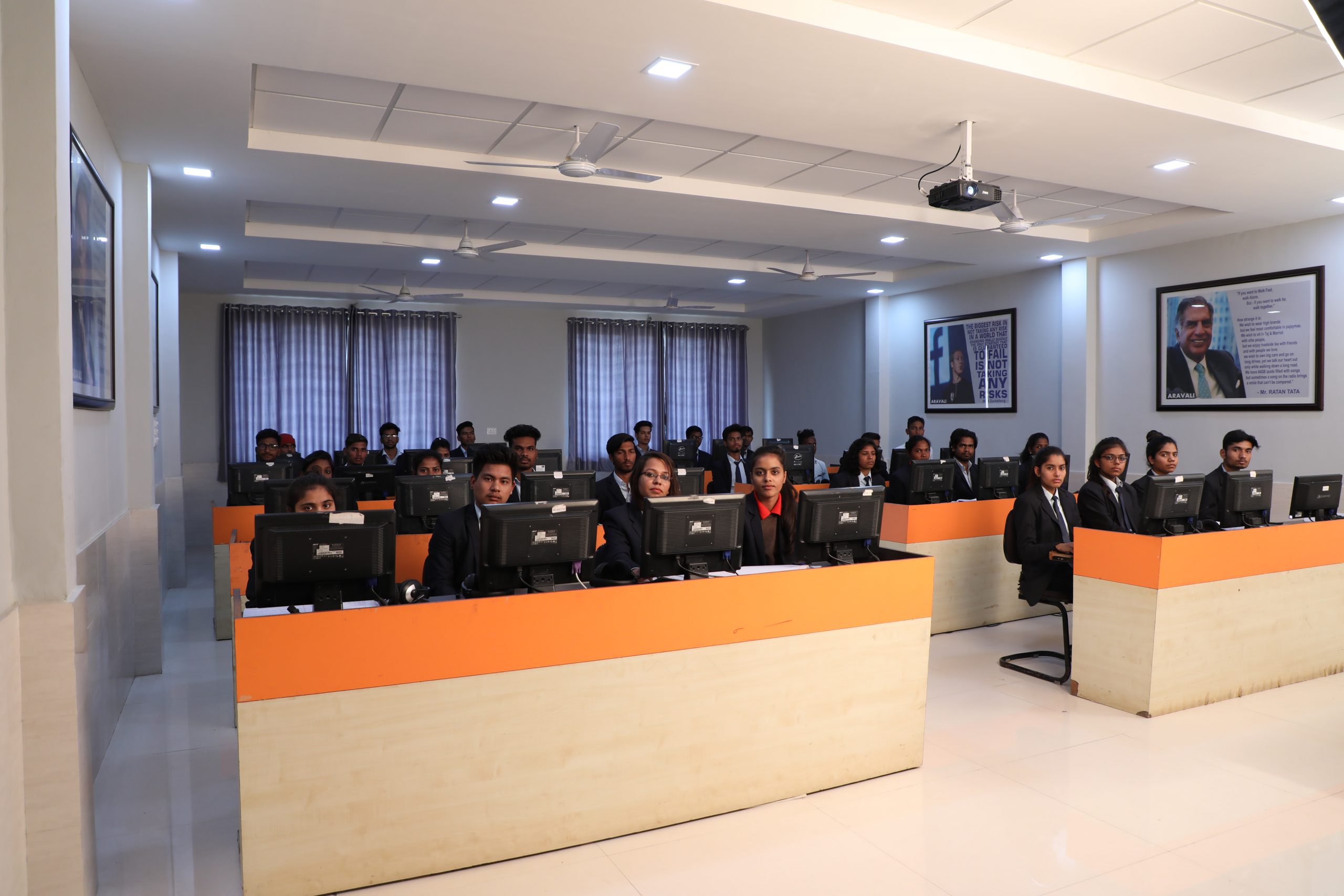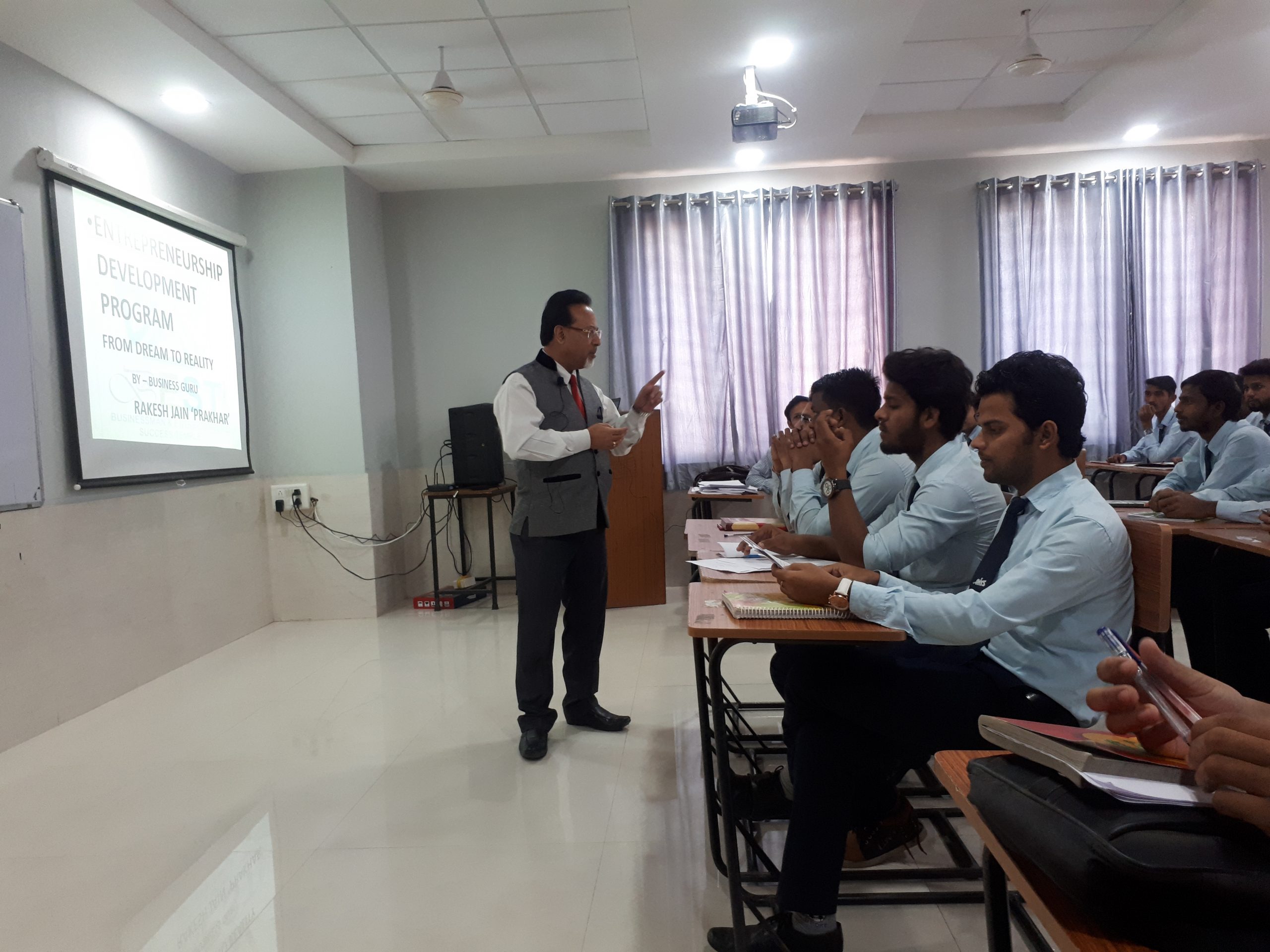
Teaching Methodology
The core curriculum and pedagogy in any Academic Institution is the true testimony of its vision & modus operandi. Rigorous and continuous efforts are organized to evolve a sequence of necessary developments. In petite, it represents the Institute’s response & adaptation to the rising and energetic environment. Aravali Institute of Technical Studies follows a pedagogy that has a strong blend of both theoretical facets as well as practical gradation. The learning environment is designed to impart the theoretical knowledge armored through the case study approach. In keeping with the philosophy of student-centered learning, the teaching methodology at Aravali Institute of Technical Studies emphasizes the importance of learning through direct experience, which promotes the development of independent learning in key transferable areas.
AITS focus on a combination of teacher-supervised and teacher-independent learning activities at the individual and group levels. This is integrated into the system of learning such that students are optimally involved in assessment of their own progress through faculty and peer feedback. For ensuring highest placements, the importance is given to motivate the students to participate in discernible projects & assignments to unite the concepts taught in the classroom with the research work carried out by them so as to imbibe the idea into their way of life.


Besides, this focus is given on guiding students to undertake projects that require close interaction with the industry. This makes the student aware of the industry approach to the applications that the students have so far only “studied”. AITS promotes Engineering in Udaipur by providing an opportunity to students to perform & interact with the Industry Experts gives the student an edge and the competitive advantage one requires in order to survive and thrive in the tough world outside.
Outcome-based Education (OBE)
OBE is an educational theory that bases each part of an educational system around goals (outcomes). According to Ron Brandt “Outcome-based education (OBE) is about preparing students for life, not simply getting them ready for college or employment”. It is based on four concepts,
1) clarity of focus (curriculum design, instructional delivery, assessment is in line with the expected outcome),
2) expanded opportunity (ways and number of times students get a chance to learn and demonstrate),
3) high expectations (all students able to do significant things) and
4) design down (design curriculum from the perspective of expected outcome). Outcome-based methods have been adopted in education systems around the world, at multiple levels. In an international effort to accept OBE, the Washington Accord was created in 1989. The Washington Accord countries recognize undergraduate engineering degrees that were obtained using OBE methods.
This OBE is to help faculty, staff and stakeholders to understand the Outcome-Based Education (OBE) system implemented at Aravali Institute of Technical Studies, Udaipur.
Outcome Based Accreditation

OBE Framework

Establishing Vision and Mission

Process of PEO Creating and Updating

OBE Process at AITS

Process Cycle

Establishing Program Outcome

Bloom’s Level






